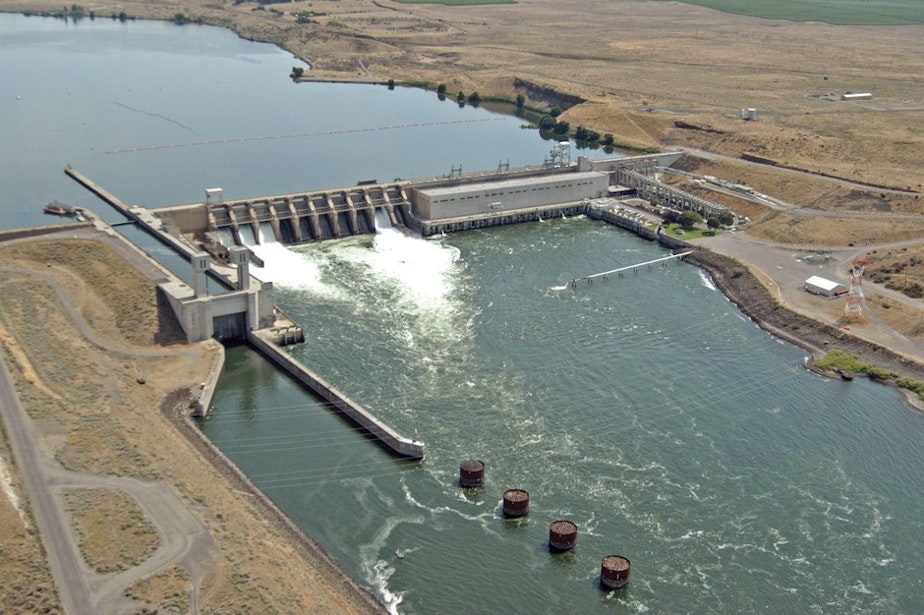Study says plans needed to replace Snake River dams power generation

Now’s the time to begin planning ways to replace Washington’s four Lower Snake River dams with a mix of renewable energy projects, according to a report by the advocacy group NW Energy Coalition.
The coalition also has advocated for removing the dams to help endangered sockeye salmon. While the dams are valuable, they are not irreplaceable, said Nancy Hirsh, NW Energy Coalition executive director.
“We need a decision about dam removal now. Then we can start the planning process so that we’re ready to take these dams out,” Hirsh said.
That process will take time, during which renewable energy, energy storage, and energy efficiency technologies will continue to develop, Hirsh said.
However, Todd Myers, environmental director of the conservative think tank Washington Policy Center, said removing the four dams could create power grid instability in the Northwest, akin to statewide power outages in Texas during a 2021 cold snap.
“Hydro is an extremely valuable part of making sure that we keep the lights on,” Myers said.
Moreover, the Bonneville Power Association called the four dams workhorses during the Northwest’s cold snap in 2021, providing much needed flexibility when Chief Joseph Dam on the Columbia River experienced an equipment failure.
“As we feel the impacts of climate change and the region builds more intermittent energy resources like wind and solar, we’re seeing more evidence that these dispatchable hydroelectric facilities are vital to public safety and electric reliability for the region,” said BPA Administrator John Hairston.
However, Hirsh said, hybrid renewable energy projects that combine wind, solar and battery storage will help reduce generation concerns when the wind doesn’t blow and the sun doesn’t shine.
“That gives you a different kind of energy output than a wind project on its own,” Hirsh said.
These types of hybrid renewable energy projects are evolving quickly, she said.
“That indicates a robustness and diversity of resources across the region and the West that could meet the needs of utilities that are decarbonizing their systems and replace the output of the Snake River dams,” Hirsh said.
The recent report found renewable energy costs have declined by around 50% between 2018 and 2021, when the coalition commissioned a similar study.
In addition, the Northwest Power and Conservation Council, which just adopted its 2021 Northwest Power Plan, might analyze how power generation could be replaced if the Snake River dams are removed or altered. More discussion on the potential analysis is expected at the council’s March meeting. [Copyright 2022 Northwest News Network]
